#Healthcare software solution
Explore tagged Tumblr posts
Text
Understanding the trends and statistics in the healthcare IT market is crucial for stakeholders to navigate the rapidly evolving landscape of healthcare technology. In recent years, the adoption of digital health solutions has surged, driven by factors such as the increasing demand for remote patient monitoring, telemedicine services, and electronic health records (EHR) systems. Moreover, the COVID-19 pandemic has accelerated the adoption of healthcare IT solutions, with healthcare providers seeking to enhance patient care, improve operational efficiency, and ensure business continuity in the face of unprecedented challenges. As a result, the healthcare IT market is witnessing significant growth, with forecasts predicting continued expansion in the coming years.
0 notes
Text
PrideHealth - Comprehensive Healthcare Management Solution
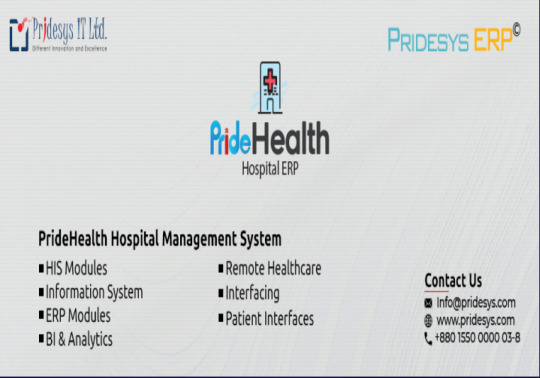
PrideHealth, a product of Pridesys, revolutionizes operational efficiency and cost reduction in hospitals and healthcare organizations. By streamlining internal information flow and communication, PrideHealth ensures accurate patient care delivery. Renowned for its scalability, security, and customizable features, PrideHealth offers comprehensive solutions for various hospital activities including inpatient and outpatient management, billing, testing, bed management, and HR management. It simplifies reporting by providing daily, weekly, monthly, and yearly insights tailored to specific requirements. With hundreds of automation features, PrideHealth offers unlimited user accounts, trouble-free appointment booking, medication tracking, dynamic dashboards, and comprehensive records management for patients, staff, diagnostics, and more. Its user-friendly interface supports efficient doctor and patient management, prescription and diagnostic report generation, billing, pharmacy management, and inventory control. PrideHealth improves efficiency, reduces errors, enhances patient care, and ensures data security, making it an indispensable tool for modern healthcare administration.
For more Information visit: https://pridesys.com/product/pridehealth/
Contact us:
E-mail: [email protected];
Phone: +8801550000003-8, 01550000035
#Healthcare management solution#Patient records management#Appointment scheduling software#Medical billing system#Integrated reporting tool#Healthcare administration software#Electronic health records (EHR) system#Patient care optimization#Medical practice efficiency#Healthcare software solution
0 notes
Text
The Importance of Data Interoperability in Modern Healthcare
Discover the importance of data interoperability in today's healthcare with Ficode. This blog showcases our expertise in healthcare software development, improving data integration for enhanced patient experiences. Connect with us to understand how Ficode's innovative solutions help shaping the future of healthcare.
#Healthcare Software Development#Healthcare software solution#Healthcare App Development#healthcare services#Custom Healthcare Solutions
0 notes
Text
What Are the Benefits of Using Custom Healthcare Software?

Healthcare technology is advancing at such a rapid rate that it is becoming unstoppable. Custom healthcare software solutions that were far-fetched barely a decade ago are now common. Indeed, modern healthcare organisations would be difficult to imagine without Hospital Management Software, Electronic Health Recording, Telemedicine, and Personal Health Records. Continue reading to see why you should use these and how they assist doctors, medical facilities, and patients alike.
The Advantages of Custom Software for Healthcare Facilities
Custom software integration enables businesses and medical professionals to provide value, improve productivity, and cut costs. Among its many advantages are real-time data availability, automation, and improved early detection.
This is seen across the facilities in a variety of ways:
Routine task automation and paperwork reduction free up resources for examinations and consultations.
Access to medical data in real-time speeds up all processes in the hospital.
Early disease diagnosis improves diagnostic accuracy and treatment success rates.
Communication with patients, coworkers, and colleagues from other clinics is easy.
Improved patient record management is critical for developing individual health plans and strategies.
Significant cost savings are realised as expenses for costly servers, networking, and software are reduced
Benefits for Patients
Custom medical software may significantly enhance the patient journey and service quality. Some of its main advantages are easier access to medical treatment, efficient communication, and strict control over medical prescriptions.
Less time is wasted in lineups and clinics as appointment scheduling systems improve;
Because of the ease with which physicians and patients can communicate from any device, some regular checkups and medical treatments can be performed remotely.
Stricter control over medicine prescriptions, as well as easier access to health records, as medical evaluations are literally just a click away.
Types of Healthcare/Medical Software
The foundation of health technology that is future-proof is made up of several types of healthcare software. Patient-centric solutions make it easier for patients to communicate with medical institutions. Business-centric ones, on the other hand, ensure a smooth workflow for medical organisations and professionals.
Electronic Health Records (EHR)
Electronic health recording (EHR) is a prominent type of software in the healthcare industry. It captures and stores patient data and history digitally. This improves information sharing between healthcare systems. The EHR storage and administration of medical information reduces the volume of paperwork dramatically. This naturally speeds up all procedures inside the organisation while also improving service quality.
2. Hospital Management Software (HMS)
HMS is a comprehensive, integrated system that assists medical staff and hospital management by managing many areas of the facility's operations. It facilitates coworker contact, automates repetitive processes, controls human and financial resources, and ensures an uninterrupted supply chain. Medical Imaging Software, Medical Diagnosis Software, and Medical Billing Software are examples of business-centric solutions in addition to EHR and HMS.
3. Telemedicine Software
With quarantine, self-isolation, and remote employment, online medical therapy is now more accessible than ever. It's no surprise, given how easy Telemedicine is for patients and clinicians, who may connect via any known device, such as mobile phones, laptops, or tablets.
After all, not all symptoms, minor injuries and infections, or certain types of therapy require in-person care. Patients, on the other hand, would like to obtain medical advice in the comfort of their own homes whenever possible, rather than queuing in front of doctors' offices. We truly have a win-win situation with Telemedicine.
4. Personal Health Record Software
Patients can analyse their health, monitor the progress of their physical state, and remotely manage their treatment using personal health record software. Digitalised personal health records, which are instantly accessible from any device, contain the patient's whole medical history, including medications, immunisations, allergies, and so on. They can also be linked to the facility's EHR systems to ensure that data is available to all parties at all times.
5. E-Prescribing and Appointment Scheduling Software
E-Prescribing Software allows patients and physicians to track and alter medicine dosage, add or remove pharmaceuticals, and renew or cancel prescriptions. Appointment Scheduling Software automates the booking of available time slots by coordinating facility calendars with appointment requests.
Conclusion
HealthTech never stops. Widespread access to Electronic Health Recording, Telemedicine, Personal Health Records, and Hospital Management Software was previously considered unthinkable, yet it is now accepted as normal.
Patients, health workers, medical facilities, and healthcare organisations all benefit from innovative healthcare software products and services. The major benefits for medical professionals and organisations are real-time data access, automation, and improved early diagnosis, which eventually leads to higher efficiency and increased value. Patients, on the other hand, profit greatly from improved access to medical treatment, smooth communication, and stringent control over medical prescriptions.
We at IBR Infotech have a great track record in the field and have already managed projects that have helped define the future of healthcare. By employing cutting-edge technology and a bright team of software engineers, data scientists, and project managers, we have assisted our partners in overcoming innovative obstacles.
Do not hesitate to contact us; we will be delighted to assist you with your tasks!
#healthcare software solution#healthcare app development services#healthcare web application development
0 notes
Text
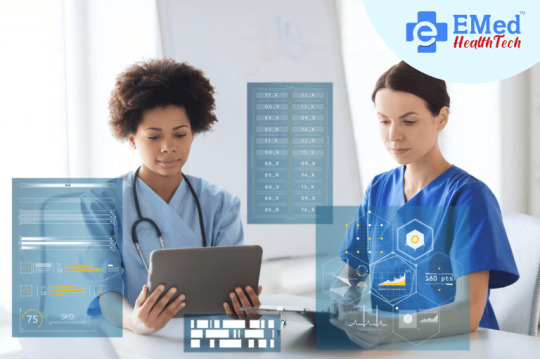
Top Challenges and Their Solutions in Healthcare Software Product Development
Healthcare software product development presents many challenges, but with the right expertise, these obstacles can be effectively addressed. If you are currently engaged in custom healthcare software development for your healthcare facility, this blog aims to help you identify major obstacles and provide solutions.
The most effective way is to hire experts who can manage the entire process. At EMed HealthTech, we have a proven track record as the preferred healthcare software development partner for many organizations and startups. With our comprehensive services and customized solutions, we can turn your software product idea into reality. Contact us today to discuss your project!
View More: https://www.emedhealthtech.com/top-challenges-and-solutions-in-healthcare-software-product-development
#healthcare software solution#healthcare software development#healthcare software#healthcare app development
0 notes
Text
Cloud Computing: Definition, Benefits, Types, and Real-World Applications
In the fast-changing digital world, companies require software that matches their specific ways of working, aims and what their customers require. That’s when you need custom software development services. Custom software is made just for your organization, so it is more flexible, scalable and efficient than generic software.
What does Custom Software Development mean?
Custom software development means making, deploying and maintaining software that is tailored to a specific user, company or task. It designs custom Software Development Services: Solutions Made Just for Your Business to meet specific business needs, which off-the-shelf software usually cannot do.
The main advantages of custom software development are listed below.
1. Personalized Fit
Custom software is built to address the specific needs of your business. Everything is designed to fit your workflow, whether you need it for customers, internal tasks or industry-specific functions.
2. Scalability
When your business expands, your software can also expand. You can add more features, users and integrations as needed without being bound by strict licensing rules.
3. Increased Efficiency
Use tools that are designed to work well with your processes. Custom software usually automates tasks, cuts down on repetition and helps people work more efficiently.
4. Better Integration
Many companies rely on different tools and platforms. You can have custom software made to work smoothly with your CRMs, ERPs and third-party APIs.
5. Improved Security
You can set up security measures more effectively in a custom solution. It is particularly important for industries that handle confidential information, such as finance, healthcare or legal services.
Types of Custom Software Solutions That Are Popular
CRM Systems
Inventory and Order Management
Custom-made ERP Solutions
Mobile and Web Apps
eCommerce Platforms
AI and Data Analytics Tools
SaaS Products
The Process of Custom Development
Requirement Analysis
Being aware of your business goals, what users require and the difficulties you face in running the business.
Design & Architecture
Designing a software architecture that can grow, is safe and fits your requirements.
Development & Testing
Writing code that is easy to maintain and testing for errors, speed and compatibility.
Deployment and Support
Making the software available and offering support and updates over time.
What Makes Niotechone a Good Choice?
Our team at Niotechone focuses on providing custom software that helps businesses grow. Our team of experts works with you throughout the process, from the initial idea to the final deployment, to make sure the product is what you require.
Successful experience in various industries
Agile development is the process used.
Support after the launch and options for scaling
Affordable rates and different ways to work together
Final Thoughts
Creating custom software is not only about making an app; it’s about building a tool that helps your business grow. A customized solution can give you the advantage you require in the busy digital market, no matter if you are a startup or an enterprise.
#software development company#development company software#software design and development services#software development services#custom software development outsourcing#outsource custom software development#software development and services#custom software development companies#custom software development#custom software development agency#custom software development firms#software development custom software development#custom software design companies#custom software#custom application development#custom mobile application development#custom mobile software development#custom software development services#custom healthcare software development company#bespoke software development service#custom software solution#custom software outsourcing#outsourcing custom software#application development outsourcing#healthcare software development
2 notes
·
View notes
Text
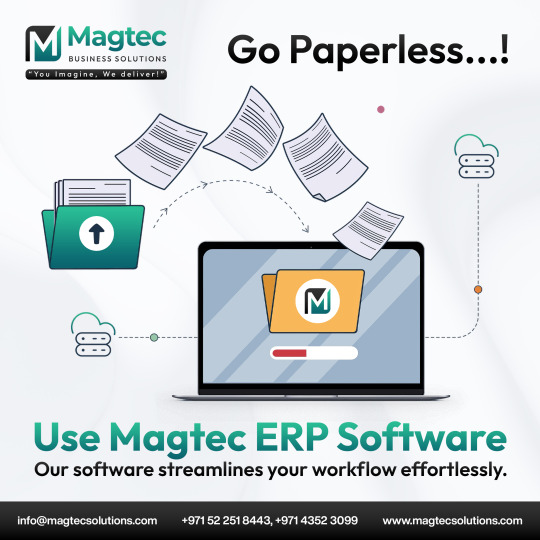
Tired of paper piles? 🚫 Go paperless with Magtec ERP Software! 💻 Streamline your workflow and boost efficiency. It's time to embrace the digital future.
#erp#business#software#management#automation#enterprise#resources#planning#solution#system#cloud#industry#finance#accounting#supplychain#inventory#crm#hr#manufacturing#distribution#retail#healthcare#education#hospitality#smallbusiness#mediumenterprise#largeenterprise#magtecerp#magtec#magtecsolutions
3 notes
·
View notes
Text
Close-Up International is a premier provider of AI empowered CRM, data analytics, and business intelligence solutions for the global life sciences industry. With a client base spanning over 650+ healthcare companies across more than 50 countries and boasting 47,000+ active CRM users, we are recognized as the #2 pharma CRM provider in the Americas. Our AI-powered CRM platform is designed to deliver actionable intelligence, enabling impactful interactions with healthcare professionals, real-time opportunity identification, and overall increased productivity. We prioritize user adoption through an intuitive user-friendly interface and offer unmatched flexibility, ensuring seamless data integration and long-term cost advantages. At Close-Up, we pride ourselves on our collaborative approach, working closely with our team of 1,000+ experts to deliver accelerated time-to-value, operational flexibility, and continual service excellence. Through our comprehensive SaaS model covering implementation, support, and managed services, we provide a highly flexible and cost-effective solutions to fit our clients' needs. For more information about our innovative CRM, data analytics, and AI solutions.
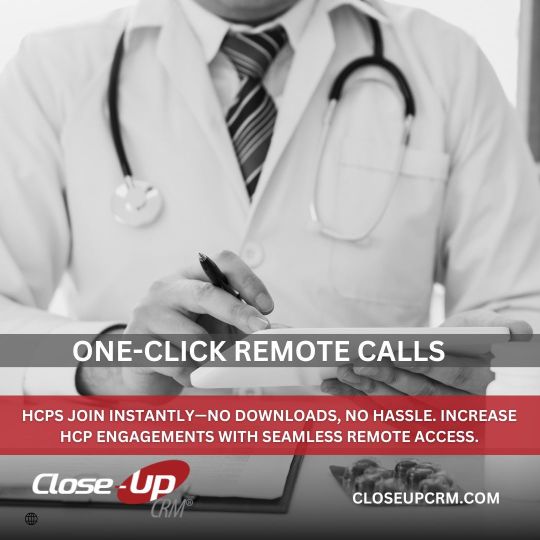
2 notes
·
View notes
Text
Simplifying Healthcare Operations with ERPNext Solution by Sigzen
Today, picture a world where managing healthcare is easy and healthcare workers can focus on helping patients. Well, that’s what ERPNext Healthcare does. It’s like a super device for doctors and nurses, making their jobs simpler. With ERPNext, things like signing up patients, making appointments, and getting paid become much easier. This means healthcare workers can spend more time caring for…

View On WordPress
#erpnext benefits#ERPNext Features#ERPNext Solution#Healthcare Management#Healthcare Operations#Healthcare Software#Healthcare Technology#Integrated Healthcare System
2 notes
·
View notes
Text
Healthcare Industry with Custom AI Software Development - SSTech System
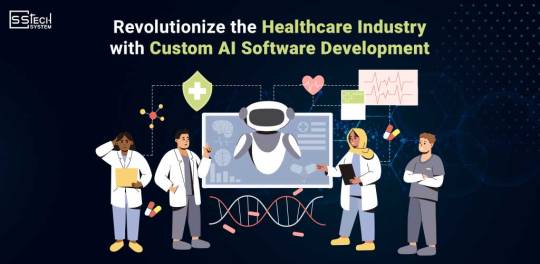
We are living in an era of technology. By glancing around, it is obvious that technology has affected every inch of our lives. Artificial Intelligence (AI) is the contemporary technological trend. It is reshaping the entire landscape. Healthcare is no exception. AI Software Development of today is having a great influence on how medical care is delivered nowadays.
AI-driven web development has brought a very important change in the way patients are diagnosed. It has not only changed the way doctors diagnose and treat patients but also how patients manage their health. Custom AI software development truly has been revolutionized as the game-changer. It also provides a good foundation for creativity and saving.
Would you like to find out about the ways AI is transforming the healthcare sector?If yes, read on! In this article, we are going to expose the way AI is changing healthcare.
AI & Healthcare Web Development
AI in Healthcare can be a very effective option of efficient healthcare. It can empower the healthcare sector more than ever before. It improves medical outcomes. This adds to the fact that it improves operations and results in cost and time savings. Well, it is not just a passing fad, but it is a trend that will remain forever.
According to data, the worldwide AI market is poised for remarkable growth. It is set to grow at an anticipated compound annual growth rate (CAGR) of 37.3% between 2023 and 2030. By 2023, it is expected to soar to a staggering $1,811.8 billion, showcasing the immense potential and rapid expansion of the AI industry.
With the emergence of AI, healthcare businesses are quickly shifting to custom AI software. It empowers them to make the best of the power of AI tailored. They can tailor the solutions as per their unique requirements.
Are you also planning to level up your healthcare business? If so, AI software development can be beneficial. Wondering how? Let’s move to the next section, where we will tell you some key benefits of custom AI software development.
Benefits Of Custom AI Software Development
AI is growing massively. It has impacted businesses across sectors. If we talk about Healthcare, AI has made things super easy. Below are some key benefits of AI software development:
Enhanced diagnostic accuracy:
Custom AI solutions for your healthcare business enable to make the analysis of large amounts of medical data. It is also able to analyze patient records, laboratory results, and imaging scans.
This however is not the only advantage; AI algorithms are also able to uncover patterns. Moreover, it can recognize abnormalities which human eyes may miss. Generally, this brings about better diagnoses and prompts treatment.
Personalized treatment plans:
AI-driven insights assist healthcare professionals in the creation of individualized treatment plans. They may personalize medical solutions to patients’ needs. It harnesses patient data, genetic information, and treatment history. It assists in suggesting tailored strategies.
Improved operational efficiency:
AI-enabled automation decreases clerical duties. For instance, it assists with appointment scheduling, billing, and inventory management. Thus, they can devote more time to patient care. It also helps in the integration of AI into the existing workflow. It will increase efficiency and productivity in the organization as a whole.
Predictive analytics:
AI has the superior predictive power. Developing AI healthcare software can pre-empt disease outbreaks, anticipate bed demand, and identify high-risk patients. It allows for proactive planning and resource allocation. AI algorithms can furnish strategic decision-makers with actionable insights to guide strategic decision-making and resource planning.
Enhanced patient engagement:
AI-driven chatbots and virtual assistants are always on standby to extend support to patients. It answers their questions anytime. Moreover, it provides medication reminders, as well as tailored health suggestions. You can hence build an AI chatbot and integrate it into websites and applications.
We have seen how AI can improve healthcare. However, are you aware of the common AI applications in the healthcare industry? Let’s find out!
Custom AI Solutions for Healthcare
AI can be used in multiple ways. Here, we have listed down some typical custom AI solutions in the medical industry:
AI-enabled diagnostics:
Custom AI algorithms can analyze medical images. It helps radiologists in X-rays, MRIs, and CT scans in detecting abnormalities and identifying disease. AI-powered diagnostic tools offer rapid and accurate results.
Predictive analytics:
Custom AI models can analyze electronic health records (EHRs). It also allows for demographic data, and environmental factors to predict disease trends, identify at-risk populations. With predictive analytics, healthcare providers can intervene proactively.
Remote patient monitoring:
Custom AI software enables remote monitoring of patients with chronic conditions. AI algorithms can analyze real-time data from wearable devices, sensors, and IoT devices to detect deviations from normal parameters and alert healthcare providers to potential issues. It enables timely interventions and preventing complications.
Drug discovery and development:
Custom AI solutions accelerate the drug discovery process by analyzing vast datasets, simulating molecular interactions, and predicting drug efficacy and safety profiles. AI-driven drug discovery platforms expedite the identification of promising drug candidates, reducing costs and time-to-market for new therapies.
AI Software Development Tools
Well! When it comes to AI software development tools, you get a variety of options. Here, we have noted the most important tools that can make a positive difference for your business:
Machine learning libraries:
Tools such as TensorFlow, PyTorch, and sci-kit-learn provide potent frameworks for developing custom AI models tailored to healthcare applications. These libraries offer a wide range of machine-learning algorithms and tools for data preprocessing, model training, and evaluation.
Natural language processing (NLP) tools:
NLP frameworks like spaCy and NLTK enable the development of AI-driven chatbots and virtual assistants for healthcare applications. These tools support text processing, sentiment analysis, and language understanding, facilitating the creation of conversational interfaces for patient engagement and support.
Deep learning platforms:
Deep learning frameworks such as Keras and MXNet offer advanced capabilities for developing custom AI models, including convolutional neural networks (CNNs), recurrent neural networks (RNNs), and generative adversarial networks (GANs). These platforms empower healthcare organizations to leverage state-of-the-art deep learning techniques for image analysis, natural language processing, and predictive modelling.
Custom AI software development has become crucial for businesses. Professional AI/ML developer helps in unlocking the full potential of AI by providing the best-in-class custom healthcare software development services for the healthcare industry.
With AI revolution in healthcare lets you enhance diagnostic accuracy, personalize treatment plans, improve operational efficiency, and empower patients to take control of their health. SSTech System a professional AI software development company, the future of Healthcare holds great potential for innovation, efficiency, and improved patient outcomes.
Final words
AI software development services for healthcare are no less than a paradigm shift in medical technology. It allows for a smarter and more efficient way of medical care and healthcare app development. If you are also a healthcare business and looking to integrate AI into your healthcare business, it is time for you to go professional. So what are you waiting for? Hire AI developers today and take your business to new heights.
#AI Solutions for Healthcare#Hire AI developers#AI software development#software development#sstech system#healthcare industry#Custom AI software#Healthcare Web Development#healthcare#b2b
2 notes
·
View notes
Text
Hire Best Talent in Healthcare IT
2 notes
·
View notes
Text
In the rapidly evolving landscape of healthcare IT, understanding prevailing trends and statistics is paramount for stakeholders aiming to drive innovation and optimize patient care. Healthcare software development companies play a pivotal role in this dynamic ecosystem, spearheading the creation of cutting-edge solutions such as electronic health records (EHR) systems, telemedicine platforms, and health information exchange (HIE) technologies. Leveraging emerging technologies like artificial intelligence (AI) and blockchain, these companies are revolutionizing healthcare delivery, enhancing patient outcomes, and streamlining operational processes.
0 notes
Text
Unlocking Efficiency and Innovation: The Role of Robotic Process Automation (RPA)
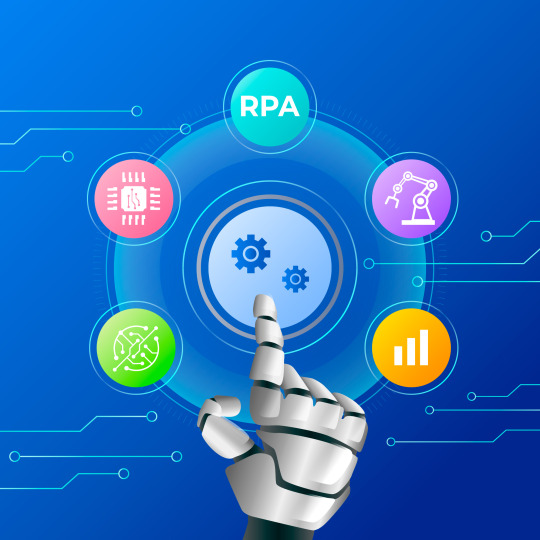
In today's fast-paced and competitive business environment, organizations are constantly seeking ways to improve efficiency, reduce costs, and increase productivity. Robotic Process Automation (RPA) has emerged as a powerful tool that can help businesses achieve these objectives.
What is Robotic Process Automation (RPA)?
Robotic Process Automation (RPA) is a technology that allows businesses to automate repetitive, rule-based tasks. It uses software robots, also known as "bots," to mimic human actions and interact with digital systems. These bots can log into applications, navigate through screens, input data, and complete tasks just like humans would.
The Role of RPA in Business:
RPA can be used to automate a wide range of tasks across various industries and departments. Here are some examples:
Finance and Accounting: Automating tasks such as accounts payable and receivable, invoice processing, and financial reporting.
Customer Service: Automating tasks such as answering FAQs, resolving customer inquiries, and processing orders.
Human Resources: Automating tasks such as onboarding new employees, processing payroll, and managing benefits.
IT: Automating tasks such as provisioning accounts, managing user access, and deploying software updates.
Impact of RPA on Businesses:
Implementing RPA can offer numerous benefits to businesses, including:
Increased efficiency and productivity: RPA can automate time-consuming and tedious tasks, freeing up employees to focus on more strategic and value-added activities.
Reduced costs: RPA can help businesses save money on labor costs, as well as reduce errors and compliance risks.
Improved accuracy and compliance: RPA bots are programmed to follow specific rules and procedures, which can help to improve accuracy and compliance with regulations.
Enhanced process visibility and control: RPA provides businesses with a clear view of their processes, which can help them identify and address bottlenecks.
Improved customer satisfaction: RPA can help businesses improve customer satisfaction by automating tasks such as order processing and customer service interactions.
RPA Services:
Implementing RPA successfully requires a partner with expertise in the technology and a deep understanding of business processes. A comprehensive RPA solution should include the following services:
Document AS-IS Process: This involves mapping out the existing process to identify areas for automation.
Design & Development of Bots, workflows, and forms for process automation: This includes designing and developing the software robots that will automate the tasks.
Bot license (We will use the appropriate underlying technology): This provides access to the software robots and the underlying technology platform.
Infrastructure: This includes setting up the necessary infrastructure to support the Robotic Process Automation (RPA) solution.
Production Deployment of the Bots: This involves deploying the bots to production and monitoring their performance.
RPA support: This includes ongoing support for the RPA solution, such as troubleshooting and maintenance.
Test & Deploy bots to production: This involves testing the bots in a production environment and making any necessary adjustments before they are deployed to full production.
Configuration data changes: This involves making changes to the configuration data of the bots as needed.
Password updates: This involves updating the passwords of the bots as needed.
Errors in executing the Bots: This involves resolving errors that occur during the execution of the bots.
Determining the “root cause” of a recurring issue or incident & recommendations: This involves identifying the root cause of a recurring issue or incident and recommending solutions to prevent it from happening again.
Infrastructure/application related issues: This involves resolving issues with the infrastructure or applications that the bots are interacting with.
Conclusion:
RPA is a powerful technology that can have a significant impact on businesses of all sizes. By automating repetitive tasks, RPA can help businesses improve efficiency, reduce costs, and increase productivity. However, it is important to choose a reputable Robotic Process Automation (RPA) companies with the expertise and experience to help you implement a successful RPA solution.
Ready to embrace the power of RPA?
Contact us today to learn more about how RPA can help your business achieve its goals.
#robotic process automation#robotic process automation rpa#rpa automation#robotic process automation software#rpa software#robotic process automation companies#robotic process automation technology#robotic process automation in healthcare#robotic process automation in banking#rpa solution#robotic process automation for finance#process automation solution#robotic process automation services#robotic process automation for insurance#rpa system#what is rpa automation#robotic process automation solution#robotic process automation benefits#robotic process automation consulting#robotic process automation consultant#rpa service provider#rpa consulting services
2 notes
·
View notes
Text
IoT Connecting Medical Devices: Revolutionising Healthcare
In this blog, Explore the transformative synergy of IoT and healthcare app development, as Ficode pioneers groundbreaking solutions. You will also witness the evolution of patient care through interconnected medical devices.
Stay informed on the forefront of innovation with Ficode, where healthcare app development takes center stage in shaping a connected and efficient healthcare landscape.
#Healthcare Software Development#Healthcare software solution#Healthcare App Development#Custom Healthcare Solutions#healthcare services
0 notes
Text
Compare and Choose the Best Medical Billing Software
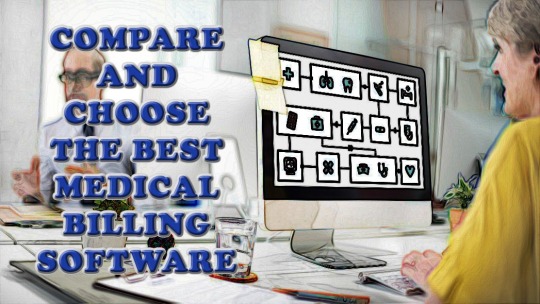
Medical billing software is a medical technology solution that automates medical billing tasks and also contributes to optimizing business management processes. It is a contemporary automation of conventionally manual practices like claim management and medical billing. There is a list of billing software used in medical practice; however, the best medical billing software depends upon the requirements and your specific needs. Excellent workable and famous medical billing software options are available in the market. However, choosing the right medical billing software helps healthcare providers optimize their revenue, improve reimbursement rates, and contribute to building a sustainable medical practice. Understanding selecting the best software to quench your needs starts from your office. The best choice of software is one that helps you to schedule your appointments and automatically enter the correct information of patients. The article will discuss the different factors to consider while choosing the right medical billing software for your medical practice. Read More...
For further details and daily updates, Follow us on LinkedIn or Visit.
#medical billing outsourcing#medical billing service companies#healthcare#medical billing solutions#hospital#medical billing florida#physician#cardiology#medical billing software
2 notes
·
View notes
Text
The impact of technology in healthcare has changed how we give and receive medical care. There is a software solution to every problem out there, making all our lives better. Doctors can perform their duties better, and the staff can focus on theirs. With mundane tasks automated, patient care and experience improve.
In short, the whole process of healthcare delivery has changed. Rapid advancements are also making patients more active in their healthcare journey. With custom medical software development, healthcare centers can create apps that fit their exact needs.
If you are looking for one such healthcare software development company, we are here to help. At EMed HealthTech, we are a healthcare software development company with an aim to innovate. We create custom solutions that fit your needs and enhance your business. Our solutions give you the choice of scalability and better returns too.
If you’re looking for reliable healthcare software development for your business, reach out to us today and take advantage of our expertise.
#healthcare software development#healthcare#healthcare software#emedhealthtech#digitalhealth#healthcare software solution
0 notes